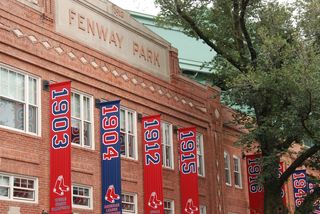Sport and Competition
The Healing Power of Sports
How I went from hating sports to discovering something powerful.
Posted December 18, 2018
Sports is a fascinating topic, for some people. I confess my eyes tend to glaze over when a game is playing on the television. Yet, it’s so important to some of the people I love that I really wanted to understand what’s happening so that I could join them and participate in this important relationship-bonding event. I mean, after all, I am ALL ABOUT RELATIONSHIPS. If I could learn to engage on deeper levels with people in graduate school and all the years of my professional and personal experiences in psychology, then surely I could be able to better connect to sports alongside my beloved sports fans.
Besides, sports doesn’t just appeal to a few people I care about—it’s a global phenomenon that has endured through the ages. Its market accounted for 3 percent of the world’s economic activity in 2015. If that number sounds small, it translates into $145 billion. That’s not pocket change. In addition, professional athletes are rather magnificent human beings, as they perform some of the greatest feats the physical (and mental) body can accomplish.
No wonder these athletic marvels are studied and even an entire field of sports psychology developed to support and enhance their endurance and capabilities. On a personality note, one study examined the “Big Five” personality traits (extraversion, openness, agreeableness, emotional stability, and conscientiousness) among athletes and found more successful athletes were higher in agreeableness, conscientiousness, and emotional stability than less successful athletes—and scored higher in each personality dimension than non-athletes.
So why would watching these young superhumans, equipped with physical powers AND apparent personality gifts, compete against one another tend to repel me?
Am I jealous? Am I scarred from not being picked on the basketball team in PE class when I was young? Is it because I’m a military brat and therefore don’t really have a home team? Does the competition, injuries, noise, and general smell of beer negatively interfere with my more delicate senses? Or is it that I don’t understand the rules of the game and the backstories of the players?
Yes is probably the answer to all of the above questions, however, the last question is the game-changer (lame pun intended).
After learning more about the rules of the game and some of the history of the players, I began to see the unfolding drama as interesting as a Netflix binge-worthy series. Not to mention, there is a major investment component when you pick a team and begin watching them. I have a few memorable experiences of watching the Super Bowl, my college football teams, and a variety of sports games from my high school because I knew someone or had a sense of connection to the team. Tracking one team for the entire season significantly magnifies the investment.

Then the investment begins to transform into a relationship when you watch the players. Watching the Red Sox this past season proved to be one of my greatest treasure discoveries for understanding sports fandom and respecting the power of athlete and coach.
To anyone who watched the World Series and to any Red Sox fan, need I say more? To the rest of the folks still reading this, I think I truly became “hooked” when I watched the Red Sox play the New York Yankees at the Yankee Stadium in the regular season. Red Sox pitcher, David Price, did not play his best game. Announcers throughout the game kept saying Price admitted that he was intimidated to play at Yankee Stadium.
Intimidated? My heart immediately went out to him.
With each successive run by the Yankees and continually watching Price spin his head backward to gawk at another home run against his team, I found myself becoming increasingly irritated by Coach Alex Cora’s decision to leave Price in the game. Why was he doing that to him? Why would he put him through that? Why would he let his team down like that?
Like a sports junkie (fan), I read the sports news and blogs the next day to see what others were saying and what would be done.
Needless to say, the games continued and then it felt glorious to see the Red Sox succeed to the World Series. I was met with more drama then I could adequately convey. It would take a novel to do it justice. The fact that one of the games went into 18 innings, the most in history is just ONE little facet of the series. There’s so much more. SO. MUCH. MORE.
Ultimately, it felt like a miracle and one of my greatest cheering moments was watching the Red Sox defeat the Dodgers. The incredible teamwork made it possible and every player gave their all. Actually, I think there are several novels that could come from this. Steve Pearce, who played exceptionally and achieved his childhood dream. Chris Sale, the superhuman pitcher who played while still recovering from an injury. DAVID PRICE. He got his day! So proud of him! Then there was Brock Holt, Rick Porcello, and Nathan Eovaldi. Christian Vasquez. Xander Bogaerts. Rafael Devers. Mitch Moreland. Hurray for Mookie getting his day after some tough games, and JD Martinez. Jackie Bradley, Jr. and truly the entire team. See the whole gang here. I feel like I’m someone at the Academy Awards trying to remember who to thank. What’s funny is I didn’t know baseball or any of these names before—now I recite them here with deep enthusiasm, cheer, and awe.
But wait, there’s more!
I even watched the after-celebration and was thrilled to see the champagne “shower” afterward. But, it was Alex Cora’s acceptance speech when taking the 2018 World Series Trophy that made me cry (well, cry again). I was born at the Air Force Base in Puerto Rico and visited there just before the devastating hurricane. To hear Alex Cora share that he was taking the 2018 World Series trophy to his birthplace home of Puerto Rico made me so very proud. I felt like my home had won. For the first time, I felt a sense of belonging and could finally understand—and participate in—the pride of celebrating a home team.




